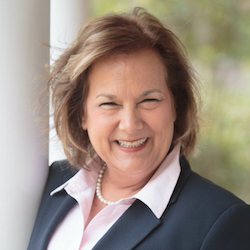A new bill in Florida that would change the way assisted living communities report so-called adverse incidents is being described by one lay media outlet as “anti-consumer,” but the legislator behind it says a goal is to align requirements for assisted living with those for nursing homes.
SB 402, introduced by state Sen. Gayle Harrell (R), would scrap a requirement that assisted living communities report to the state within one business day when they suspect that something staff did or did not do led to an adverse incident and resulted in, for example, death, injury or a hospital transfer. Under the bill, assisted living communities instead would be required to begin an investigation within 24 hours of the potential adverse incident and then, as they do now, provide a report on the investigation to the state within 15 business days.
Harrell told the Tampa Bay Times that the change in adverse incident reporting was meant to “to make sure the language would be as similar as possible” to what is required for nursing homes.

“What we were trying to do with that is to make it similar to the nursing home statute and also the hospital statute,” Florida Senior Living Association President and CEO Gail Matillo elaborated to McKnight’s Senior Living.
The change would allow the staff to focus on providing care to a resident immediately after a suspected event and also would reduce unwarranted citations that occur when staff file a one-day report, then determine that the event was not an adverse incident but forget to note that in the state system, FSLA representatives said.

Currently, after an investigation, “if the ALF staff determines that this was not, in fact, an adverse incident, that one-day report is still hanging out there, and that triggers [wrongly to] the agency that there was an adverse incident and the 15-day report requirement was not met and will result in a citation for the ALF,” said Lee Ann Griffin, FSLA director of regulation and education.
The language related to reporting requirements, Matillo noted, was part of the bill last year when it passed the state house but not the senate. “Nobody … raised a red flag” then, she said, noting that the state Agency for Health Care Administration and the ombudsman also supported the bill last year.
LeadingAge Florida also supports the bill.
“We are tracking SB 402,” the organization said in a statement to McKnight’s Senior Living. “LeadingAge Florida supported Sen. Harrell’s bill last session, and since there are no significant or substantive changes to the bill as filed this session, we are currently taking that same position.”
Despite a negative assessment of the change in reporting requirements from some resident advocates — Brian Lee of Families for Better Care told the Tampa Bay Times that the bill was “rolling back enforcement for facilities” — “[t]here’s so much positive about the bill,” Matillo said.
Among the changes:
- The bill would allow residents who need assistive devices to remain in assisted living. “Any kind of technology that they can use in their home they can now use in their ALF home, which is really exciting,” Matillo said. An assistive device, as defined in the bill, is any device designed or adapted to help a resident perform an action, task or activity of daily living, or transfer, or prevent or recover from a fall. “The term does not include a total body lift or a motorized sit-to-stand lift, with the exception of a chair lift or recliner lift that a resident is able to operate independently,” according to the bill language.
- The bill clarifies how assisted living community staff members should help administer medication to residents. The legislation removes the requirement that staff read the medication label in the presence of the resident and defines assistance with self-administration of medication as “in the presence of the resident, confirming that the medication is intended for that resident, orally advising the resident of the medication name and purpose, opening the container, removing a prescribed amount of medication from the container, and closing the container.”
“A good bit of the bill really does focus on really clarifying language,” Griffin said.
Read the bill text here for additional information.



